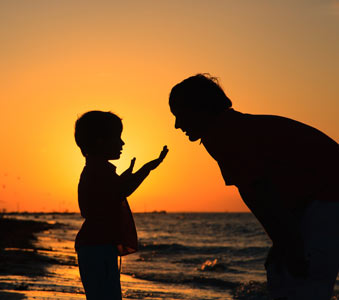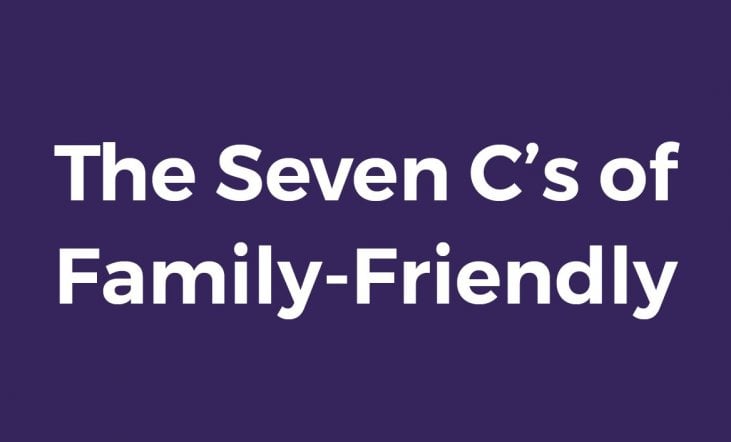Newsletter Sign Up
Regular work+family updates for
HR and diversity professionals.
My Family Care asks Jim: Most of the time we're excited when our children make a new friend, but sometimes we feel they were better off before. Whether the new friend is overly mischievous, shows bullying tendencies or leads your child to temptation, how can you address the issue of negative friendships, without going down the Katie Hopkins route?
Starting early
Bringing up children is a very important responsibility for parents and is not always predictable. Children, like adults, soon realise that we are not all created equal and we do not all respond to situations in the same way. From the time we bring our newborns home, we start to model and teach values, morals, culture and interactions on a daily basis. How we hold, touch, talk to, interact with and have them interact with others, is the beginning of our child rearing style.
When new situations occur, we as parents try different strategies to make the best decisions and to keep our children safe and comfortable. We introduce our children to adults and children who may be relatives, friends, neighbours, community service providers and - in some cases - total strangers that we encounter on our travels. How we react in these situations models behaviours that we hope our children will emulate as they grow and learn.
A learning experience
Making new friends is part of a child's growing up process. Sometimes friends come from activities they are involved in, sometimes from play dates arranged by parents, and sometimes from those in their years at school. As they grow up, we encourage our children to make good choices. We hope this applies to the friends they choose, as well as looking both ways when they cross the road.
When they make the best choices, we praise them, and when they make less than perfect choices, we are presented with a learning experience for all of us. Sometimes we learn from success and sometimes we learn from less than good choices - we should let our children be involved in these lessons, because at some point we won't be there when the choice has to be made.
Resolution > exclusion
Most children learn boundaries. Mischievous or bullying friends often learned that some of their behaviours were not encouraged or allowed in our house. We model alternative, more acceptable behaviours and talked about why we preferred these. We and our children, and their friends, all benefited from these situations and the resultant outcomes. It's more preferable to resolve differences than forbidding friendships.
From being involved in the process, our children and their friends became aware of differences, learned how to resolve these differences in ways that benefit all involved. They began to develop independent choices in an environment encouraged and guided by us.
Our hope as parents was that our children would learn to make good independent choices that reflected the values they grew up with at home. Constant communication was the single most important way that we knew what our children were doing when they are away from home. Our knowledge came from discussions with our children, their teachers and the parents of their friends.
The odd exception
It would be naive to think that all friendships work out positively. Sometimes it is in the best interest of all involved to discontinue seeing certain people. Once again, this is the end result of a process instead of a solution to an incident. This is how children gain independence and learn to make good choices.
Closer to home
As a teacher, I always believed that I could best serve my students by asking myself, "what would I do if this were my own child?" School is always more difficult in that there are more children in the class and more individuals to teach than there is in the home. However, the same principles of acceptable behaviour, dialogue of conflicts, and mutual resolution of incidents results in the best learning experience. Ultimately, this is the best way to have children learn to make good decisions.
As parents we all look forward to the independent decisions that our children make while at home and after they have left to live independently. How rewarding it is to look at their decisions and know that they reflect some of the teaching and learning that occurred as they grew up.
Jim Harding, Retired Teacher, Father of 3












